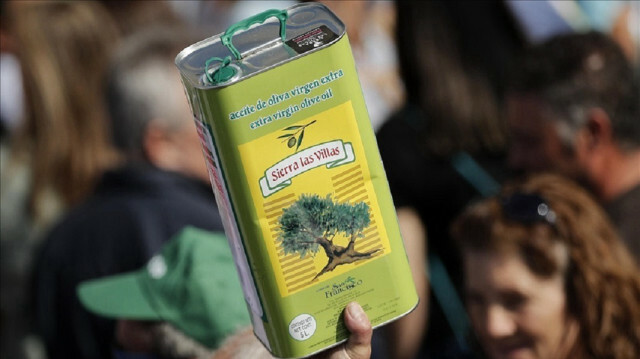

File photo
Country on track to produce less than 800,000 tons of olive oil this year, down from 1.4M in 2021
The Spanish agriculture minister said Monday he was worried that olive oil could become a “luxury product” in Spain.
“Gourmet products add a lot of value to the sector. But for a product like olive oil, it’s important that it remains accessible for the middle classes,” Luis Planas said in an interview with Spanish broadcaster Onda Cero.
A significant drought and record heat hit this year’s olive production in Spain. At the same time, higher energy prices contributed to rising production costs.
Planas said Spain is on track to produce less than 800,000 tons of olive oil this year — down from 1.4 million tons in 2021.
While the agriculture minister said he does not predict olive oil shortages, he called on companies supplying the local market to keep costs down.
“Price increases are affected by production costs, but also involve business decisions,” he added.
Planas said he does not see exports being overly affected by the rising costs.
“Last year, we sold 1.1 million tons abroad, and the prices keep improving. US imports are exploding, and there are huge possibilities for more growth. My worry is Spain,” he said.
In Spain, the price of food shot up 15.4% over the last year, according to October’s inflation report — the highest annual spike since the historic series began in 1994.
The Spanish agriculture minister said he expects food prices to continue to rise until the end of the year due to higher food demand over the holiday season. But he forecasts price increases would begin to “gradually decline” starting early next year.
He also recognized the sector’s dependence on energy prices. For instance, in the EU, fertilizer prices increased 149% over the last year as energy costs soared, he explained.
Planas said the EU is discussing securing more local fertilizer supply and hopes Russia can start exporting ammonia again through Ukraine.
However, Spain also places hope on the European Commission establishing an effective price cap on natural gas prices.
Last week, Spain’s energy minister called the EU’s price cap proposal a “joke in bad taste” and vowed that Spain would fight to bring the cap down to a more reasonable level.
In Monday’s interview, Planas insulated that Germany was blocking a more desired price cap.
“There’s one member state that benefits from the status quo,” he said.
When the interviewer asked if it was Germany, Planas replied smiling: “It’s a well-known state ... I’ll let you identify it.”
#Olive oil
#Spain
#Luis Planas
